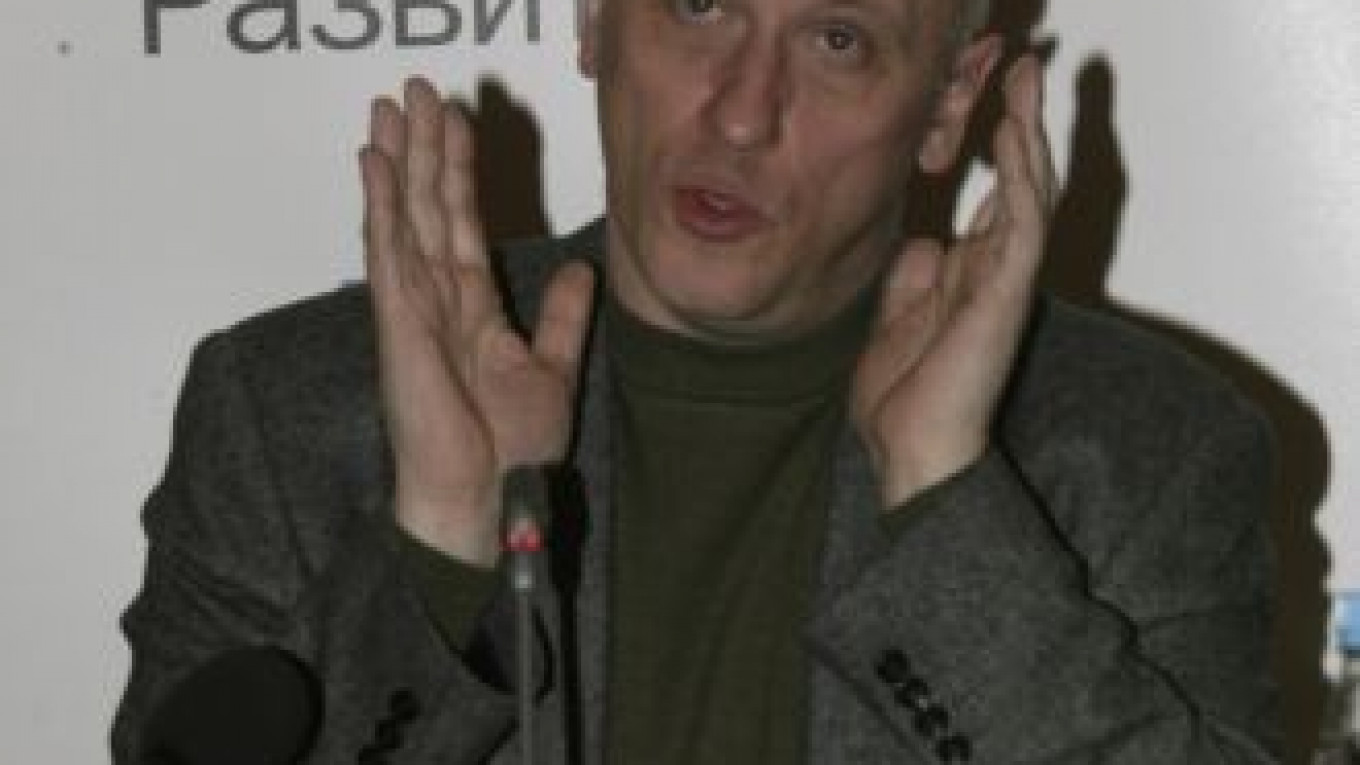The head of the president's human rights council has played down talk of a reaction against Vladimir Putin's return to the presidency after a fresh wave of resignations from the group.
Mikhail Fedotov, head of the Presidential Council on the Development of Civil Society and Human Rights, told Kommersant that the 40-member council had "nine or 10" vacancies and could not continue its work if more than 20 people left.
These changes were part of the "normal rotation" of the council's personnel, he told RIA-Novosti after the interview was published.
"I would not say there is a mass exodus from the council," he said. "The members are leaving for different reasons."
The departures include Alexander Auzan, head of Social Contract, a nongovernmental organization that studies the development of rights and civil society. He said his 10 years of service was "enough."
Other outgoing members are journalist Leonid Radzikhovsky and NGO leaders Emil Pain, Alexei Simonov and Georgy Dzhibladze.
Svetlana Gannushkina, head of refugee aid organization Civil Assistance, made her resignation official Monday, criticizing a bill on demonstrations to be heard by the State Duma on Tuesday.
If that bill passes, demonstrators would face steep fines for protests that get out of hand. "Everything that we advised, they are doing the opposite," Gannushkina told RIA-Novosti.
Political commentator Dmitry Oreshkin and Yelena Panfilova, director of the Russian branch of Transparency International, announced their intention to quit the council in May.
Oreshkin told Kommersant on Monday that he was not satisfied with the government's lack of interest in electoral violations.
The council was created under another name by President Boris Yeltsin in 1993.
A Message from The Moscow Times:
Dear readers,
We are facing unprecedented challenges. Russia's Prosecutor General's Office has designated The Moscow Times as an "undesirable" organization, criminalizing our work and putting our staff at risk of prosecution. This follows our earlier unjust labeling as a "foreign agent."
These actions are direct attempts to silence independent journalism in Russia. The authorities claim our work "discredits the decisions of the Russian leadership." We see things differently: we strive to provide accurate, unbiased reporting on Russia.
We, the journalists of The Moscow Times, refuse to be silenced. But to continue our work, we need your help.
Your support, no matter how small, makes a world of difference. If you can, please support us monthly starting from just $2. It's quick to set up, and every contribution makes a significant impact.
By supporting The Moscow Times, you're defending open, independent journalism in the face of repression. Thank you for standing with us.
Remind me later.






